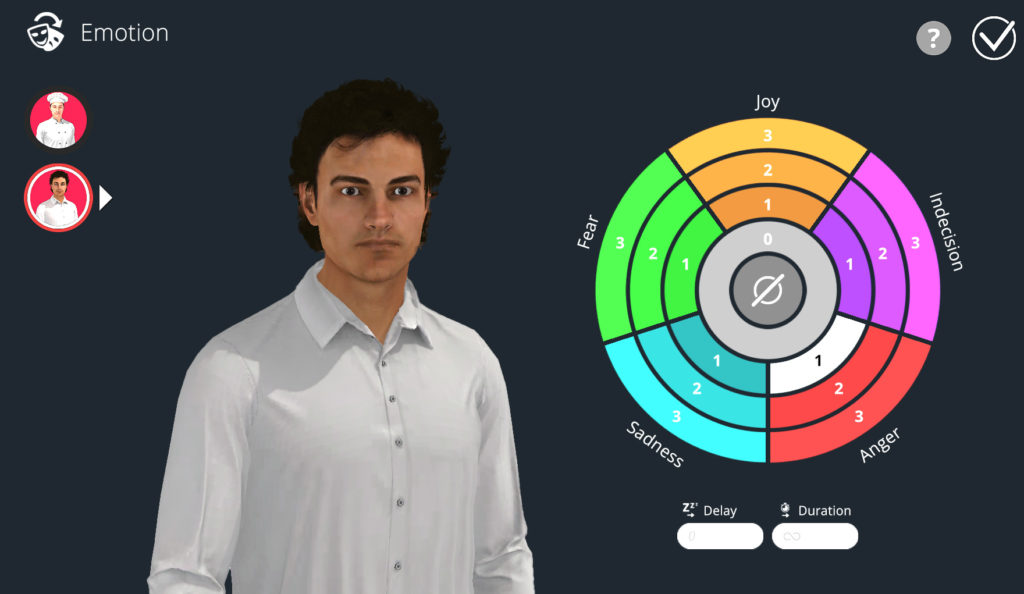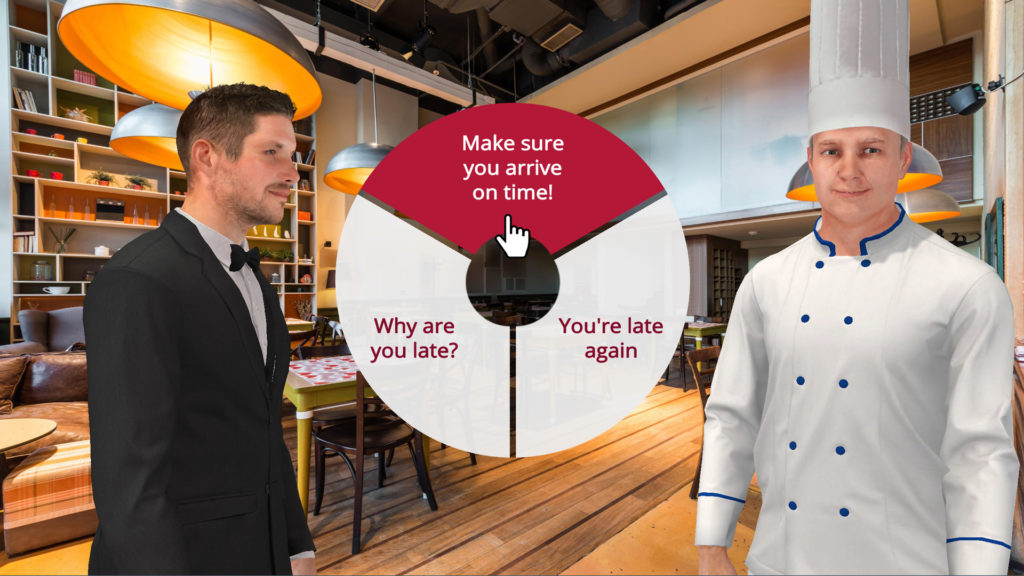Behavioral skills, also known as soft skills, are non-technical abilities that enable individuals to interact effectively with others and adapt to their environment.
The importance of behavioral skills in today’s workplace is increasing. Faced with increasingly complex and nuanced situations, technical skills alone are no longer sufficient. Companies are looking for employees who can work in teams, communicate effectively, creatively solve problems, and adapt to constant changes.
In France, the lack of soft skills is a major problem for companies. According to a study by Pôle Emploi, 70% of recruiters believe that candidates lack essential behavioral skills. This costs French companies dearly: its annual cost is estimated to be €100 billion in France!
How can companies develop their employees’ soft skills?
There are many ways to develop soft skills in VTS Editor, including:
Realistic and varied scenarios:
VTS Editor allows you to create realistic scenarios that simulate concrete work situations encountered by employees. These scenarios can cover topics such as communication, collaboration (managing a remote team project), conflict management (defusing a tense situation with a colleague), negotiation (conducting a sales negotiation), etc.

Customizable Virtual Characters:
Virtual characters can be customized based on the desired appearance, personality, and behavior. This allows for the creation of more realistic and engaging interactions for learners. For example, you can create an angry character to train employees in anger management.

Choices and Consequences:
Learners can make choices during scenarios, which have consequences on the course of the story. This helps to empower them and prompts them to consider the implications of their actions. For example, a learner who chooses to be aggressive towards a virtual client may see the negotiation fail.

Personalized Feedback:
Learners receive personalized feedback at the end of scenarios, allowing them to identify their strengths and weaknesses and make progress. The feedback can be delivered by a human trainer or through the module itself.
